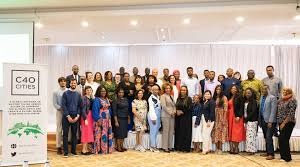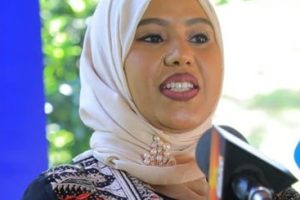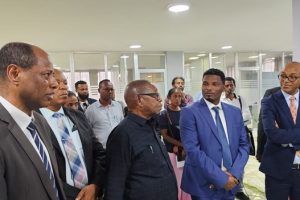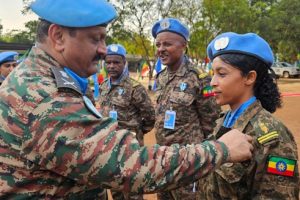
The Eastern Horn and the Great Lakes Region of Africa where Ethiopia is also located hosts significant number of refugees. That makes it [the region] quite critical in dealing with the refugees’ issues UNHCR regional, as stated by UNHCR. The UNs refugee’s organization stated that it is striving to find new solutions in dealing with refugees globally.
Ethiopia has long history of hosting refugees that are fleeing conflicts and violence. Currently, the leadership has really made possible a new era for refugees support and protection here in Ethiopia through expanding the registration and documentation services for refugees, furthering the inclusion of refugees, Clementine Nkweta-Salami, UNHCR Regional Director of the Eastern Horn and the Great Lakes Region told The Ethiopian Herald.
The challenges that refugees are facing today are related to stability, protection of basic rights, health, shelter, education and adequate food she further stressed adding that the new global approach-the global compact on refugees looks at other issues as well on how to support them in order to ensure that they are integrated with the local people hosting them.
Infrastructural expansion in the region is not enough to do so. Refugees should have the access to develop their human capital not only in terms of work, but most importantly in terms of making them self-reliant and contributing their share to the national development, she stressed.
“UNHCR is working to lobbying governments for sustainable solutions in addition to providing settlements, to consider refugees to work through complement with partners, to bring political solutions and in doing so to bring refugees back home.” In many countries in the region, refugees are de facto integrated; they live side by side with the local people to some extent. And many countries are working to integrate them legally, according to the regional director.
Domonik Kirika is a Kenyan refugee in Ethiopia. He flees Kenya because there were ethnic clashes near the border with Ethiopia. He was sheltered first in one of the refugee camps in Benishangul Gumuz State in western Ethiopia for five years and after that he came to Addis Ababa and registered officially in the UNHCR urban refugees camp in the capital Addis Ababa.
Now, he had refugee’s identification card (ID) and he is allowed to open a bank account in the Commercial Bank of Ethiopia through the new refugee’s proclamation in Ethiopia. Kirika also had a job as English teacher in a private school and the UNHCR is paying him a monthly support of USD 80.
William Andermajek, a Senior Advisor of the Minister of Education of the Republic of South Sudan for his part said that the initiatives for refugees in Ethiopia and the Eastern Horn and the Great Lakes Region have been taking place long time back. South Sudan has also been active in participating in all the initiatives regarding conferences.
“The countries in the region are part of the declaration and implementations to ensure inclusive socio-economic activities for all including the refugees in the region.” In South Sudan, refugees are now included. They are benefiting from the same curriculum, the same policies and guidelines, he added.
“The major challenges in South Sudan today are the condition of peace. However, peace is coming and when it comes to South Sudan; few challenges like reaching the refugees will be improved. But all in all, South Sudan has applied the national policy on education of the refugees in the country.”
The South Sudanese official, who was also one time the concerned officer in Ethiopia in the Dima Refugee Camp, stated that the South Sudan refugees in Ethiopia are still stable. They are getting normal education. The same is in Uganda. South Sudanese refugees in Ethiopia enjoy the same facilities with the local communities. The cooperation between the government of Ethiopia and the UNs refugee agency, UNHCR is something appreciated, he added.
South Sudanese look Ethiopia as their second home due to the fact that though they are originated in South Sudan, they are enjoying protection of the Ethiopian government and people, he further stated. “Inclusive treatment has great importance.”
Ethiopian Minister of Peace, Muferiat Kamil stated that the efforts of all stakeholders are crucial in coping with the pressure on host countries, particularly IGAD member states, to work on reducing natural and man-made problems, such as drought and conflict in order to minimize the burden induced from refugees.
The Minister noted that Ethiopia has been receiving a large number of refugees, adding that the support for the refugees will continue to be strengthened and that the communities in which the refugees are located are doing so. She said: Ethiopia has been providing education, health and other infrastructures for refugees that it has promised to accommodate refugees despite pressure.
One should not deny that UNHCR recognized Ethiopia is coping up with its own development. Challenged yet the government has taken place a bold or a groundbreaking decisions to ensure that refugees can be supported side by side in dignity with the nationals, Nkweta-Salami noted.
In addition, she applauded that the bold move of the Ethiopian government proclamation on refugees will ensure that refugees can enjoy the full spectrum of their rights and that will help them contribute to the development of the country as they have to put money in the banks, they can stimulate the economy. Global donors should step up to support these initiatives to ensure the refugees socio-economic inclusion, the regional director called.
The Ethiopian Herald, Sunday Edition November 3/2019
BY HAFTU GEBREZGABIHER





